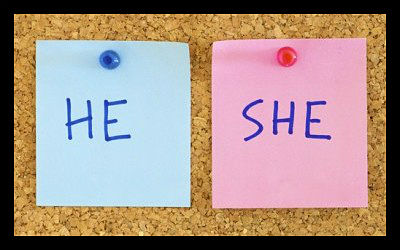Europe
News
The gender riddle
Date: 09.03.2015
A man and his son are involved in a car accident. The father dies. The son is rushed to hospital. The surgeon arrives, but says “I cannot operate on this boy as he is my son.” Can you explain this situation? Who is the surgeon?
You may have felt puzzled by this situation for some seconds, trying to figure out how something like that might be possible or you may have come up with very creative scenarios. However, the answer is quite simple if you only remember that a child has two parents and that women can also be surgeons. Yes, the surgeon is the child's MOTHER. The fact that we are not used to associating the job of a surgeon to women, speaks a lot about our perception on men and women and about the power of society-prescribed gender roles.
 Gender equality is the hot topic of this month, as we have just celebrated International Women's Day and the European Year of Development has as theme this month: "women and girls". While it cannot be denied that tremendous progress has been made in this field through civil society's actions and laws adopted at national, European and international level, gender equality still remains a reality for plenty of children, young people and adults all over Europe and all over the globe.
Gender equality is the hot topic of this month, as we have just celebrated International Women's Day and the European Year of Development has as theme this month: "women and girls". While it cannot be denied that tremendous progress has been made in this field through civil society's actions and laws adopted at national, European and international level, gender equality still remains a reality for plenty of children, young people and adults all over Europe and all over the globe.
The concept of gender refers to the social roles created for men and women, who have emerged and have been shaped throughout time. Gender is different from the concept of sex which encompasses the physical and morphologic traits that differentiate women from men. Gender is more about what society sees as "feminine" or "masculine", what your parents and friends think you should do as a girl or as a boy or about how you should behave in certain situations. In other words, gender is our "social sex" and it is a pattern that is learnt, transferred and reproduced through a process we call socialization.
Sooner or later we learn that boys are expected to be tougher than girls, that they should not cry or express their emotions publicly, they should not wear skirts, paint their nails, wear jewellery or play with dolls. On the other side, girls learn that they are expected to be caretakers, that they are more sensitive and delicate and that most of the house chores are their responsibility. We learn this in our families, in school, from our friends or from the television. Research[1] shows that gender roles start to shape as early as age two and this affects the way we behave and expect other to behave based on whether they are boys or girls.
This is also how gender stereotypes appear, are learnt and start to be applied. In most cases, we are not even aware of the gender stereotypes we have and how we learnt them, which is one of reasons why we hardly ever question them. It is very difficult to question something that you have been raised to believe is normal and unfortunately in most of Europe's patriarchal societies, it is "normal" for men to be dominant and for females to be submissive. Nevertheless, you may ask yourself: if the world has been living like this for so many years, why should we question these stereotypes? Well, maybe we should come back to the riddle and reflect a bit on how easy it would have been to give an answer if our gender stereotypes had not been present in our thinking. The worst problem with gender stereotypes is that very often they generate violent behaviours. Whenever we, either men or women, step outside of society's gender stereotypes, we are considered abnormal. Men who seem more feminine are often victims of violent incidents while a large percentage of women still suffer from domestic violence and globally one in three women will be beaten and raped during her lifetime[2].
We definitely do not want to make you sad but we do want to make you AWARE. Now that you have seen how gender roles affect our lives and how gender inequality is created it is time you start wondering about what you could do. Take small steps in changing your behaviour towards yourself and towards your peers and reflect on what makes you and other people happy instead of what society expects from you. Share the gender riddle or tell it to your friends to make them think of their own gender stereotypes. Check out what actions are taking place in your country on International Women's Day on www.internationalwomendays.com, or join the "Heforshe" campaign of the United Nations. Whatever you do, always remember that gender inequality affects both men and women and that achieving equality is EVERYBODY's responsibility.
[1] Weinraub, Marsha et al. The Development of Sex Role Stereotypes in the Third Year: Relationships to Gender Labeling, Gender Identity, Sex-typed Toy Preference and Family Characteristics, 1984, Child Development, 55, pp. 1493-1503
McGurk, Harry, Childhood Social Development: Contemporary Perspectives, 1992, Lawrence Erlbaum Associated Ltd Publishing
[2] Information excerpted from the United Nations Secretary-General’s In-depth Study on Violence against Women, 2006, and from websites for the United Nations Fund for Women (UNIFEM) and United Nations Population Fund (UNFPA).
Language
English